Fermented foods are an indispensable dish during Tet. There are many types of fermented foods from both plants and animals such as pickled onions, pickled shallots, kimchi, eggplant, pickled cabbage, fermented pork rolls, Chinese sausage...
These dishes have a mild sour, spicy, sweet, salty and aromatic taste that will help increase the flavor of the dish, make it more delicious, prevent boredom and indigestion in meals with a lot of fatty meat and banh chung. However, although fermented foods help balance the beneficial bacteria in the intestines, if not processed properly and unhygienic, they will be very harmful to health.
According to a study in Korea conducted by two scientists , Shin and his colleagues, in 2014, there were reports of 1,022 cases of students in 10 schools in Provence Incheon suffering from food poisoning due to eating kimchi, a traditional Korean dish made by fermenting many vegetables, the most common of which is cabbage. The results of the study showed that the children had gastroenteritis caused by E. coli (ETEC) strains that produce enterotoxins.
Technically, the process of fermenting food by pickling vegetables. This process helps beneficial bacteria in the body to convert sugar into lactic acid, creating a characteristic sour taste. However, if hygiene conditions are not guaranteed, other harmful bacteria can also develop and produce toxins. In addition, when fermenting, a part of the nitrate in vegetables can be converted into nitrite. Nitrite is not toxic, but when combined with other substances in the stomach, it can form nitrosamine, a substance that can cause genetic mutations, causing stomach cancer.
If fermented foods are not properly preserved, bacteria such as E. coli, typhoid, staphylococcus, listeria... can grow and cause food poisoning. Common symptoms are abdominal pain, diarrhea, nausea, vomiting, fever.
Some people are more susceptible to fermented food poisoning than others, and should avoid eating them: people with stomach problems, the acid in fermented foods stimulates increased gastric juice secretion, causing spasms and inflammation of the stomach lining; people with high blood pressure and cardiovascular disease with high salt content in fermented foods will increase blood pressure and heart failure; people with kidney disease will have kidney damage, because the kidneys play an important role in eliminating salt from the body, foods with too much salt can burden the kidneys.
Pregnant women should limit their intake of fermented foods to avoid affecting the fetus. Unpasteurized fermented foods may contain harmful bacteria such as Listeria, which can cause miscarriage, premature birth or serious infections for both mother and baby. High salt content can lead to high blood pressure, causing pregnancy poisoning, affecting the circulatory system of both mother and baby. On the other hand, some fermented foods use preservatives such as borax to make the food crispy, chewy, and prolong its shelf life, which will adversely affect pregnant women and fetuses.
Children have immature digestive systems and are easily irritated by acids in fermented foods.
There are three steps in the process of making fermented foods that are susceptible to bacterial contamination. First is the selection of raw materials, vegetables are not washed properly, and there is dirt and bacteria stuck on them. Second is the processing tools are not cleaned thoroughly, and bacteria remain from previous use, such as bottles and jars that are not sterilized with boiling water and are not tightly covered. Do not wear gloves when mixing vegetables. Third is the soaking and incubation is not hygienic, the fermentation time and temperature are not suitable.
Be careful not to eat fermented foods such as pickled onions, pickled shallots, kimchi, eggplant, pickled cabbage, fermented pork rolls, etc. that have gone bad. If you notice that the fermented food has a strange smell, is too sour, or has mold or an unusual color, you should not eat it to ensure a happy and healthy Tet.
 Don't let children get out of rhythm with their eating during Tet.
Don't let children get out of rhythm with their eating during Tet.Source: https://tuoitre.vn/can-chu-y-voi-mon-an-kieu-len-men-nhu-cai-chua-dua-hanh-cu-kieu-20250123075025399.htm













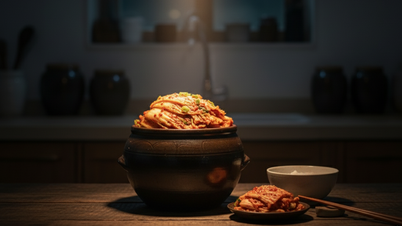







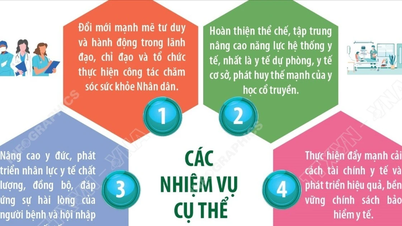


















































![[Infographic] Vietnam's stock market exceeds 11 million trading accounts](https://vphoto.vietnam.vn/thumb/402x226/vietnam/resource/IMAGE/2025/11/09/1762677474332_chungkhoanhomnay0-17599399693831269195438.jpeg)
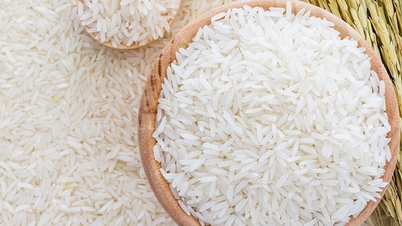










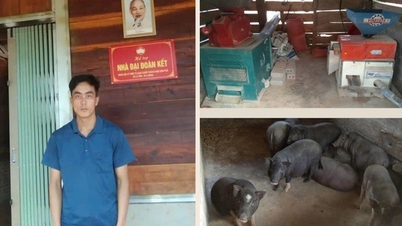
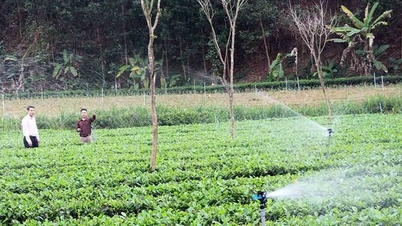









![Dong Nai OCOP transition: [Part 2] Opening new distribution channel](https://vphoto.vietnam.vn/thumb/402x226/vietnam/resource/IMAGE/2025/11/09/1762655780766_4613-anh-1_20240803100041-nongnghiep-154608.jpeg)













Comment (0)